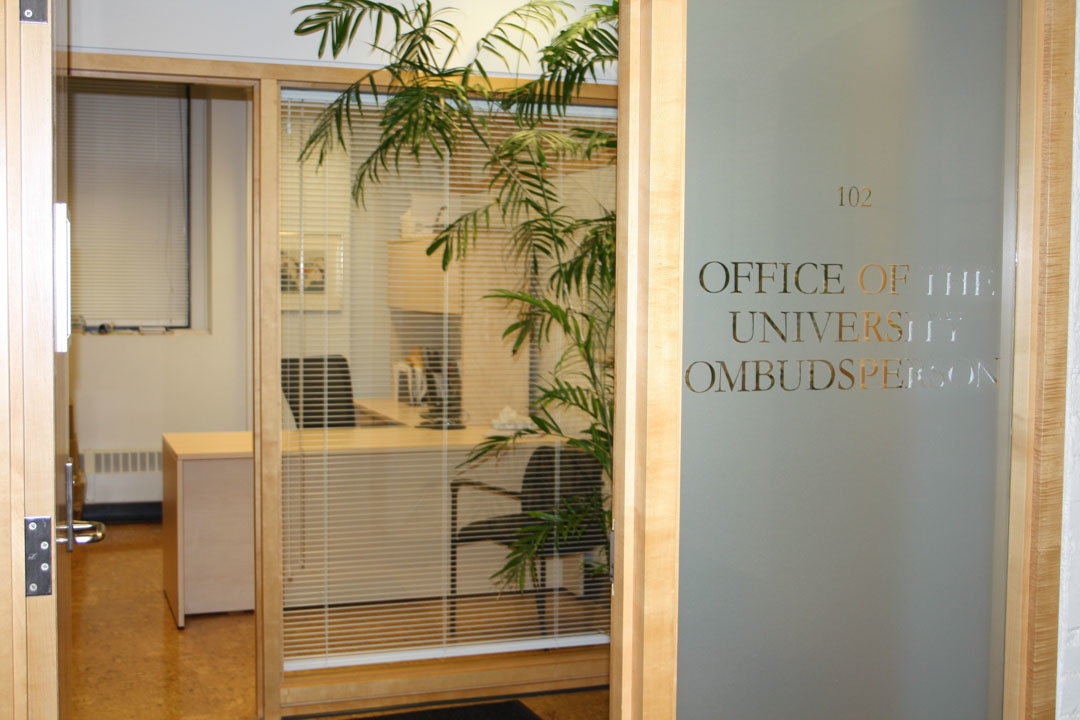Content warning: This article discusses sexual harassment and assault.
In this year’s report from the university’s ombudsperson — the officer who handles complaints from community members — outgoing ombudsperson Ellen Hodnett recommended that the university examine its policies on uncivil conduct and harassment. The report was presented at the Governing Council meeting on October 28, where the council thanked Hodnett for her work before her retirement.
Hodnett’s recommendation comes after university community members have spoken out about larger issues of sexual violence and harassment. Over the summer, students in the Faculty of Music wrote an open letter describing a culture of sexual harassment in the faculty and calling for action. More recently, former Trinity College Provost Andy Orchard has been accused of sexual harassment and misconduct from when he worked at the university back in 2013. The university had received at least two complaints about Orchard but did not take any action.
A review of the university’s policy on sexual violence and harassment is underway now. The review will look at how the university can strengthen its existing policy.
The recommendation
Hodnett recommended that an examination of the university’s policies on uncivil conduct and harassment should focus on encouraging community members to disclose issues, clarifying policies, increasing transparency on reporting processes, and generally improving the quality and timeliness of the university’s responses to complaints about uncivil conduct and harassment. She added that examining how complaints are handled across different academic units, as well as constituencies such as students, staff, and faculty, would be beneficial.
“During my tenure as Ombudsperson, I have observed a pattern which cuts across all categories of the University community,” wrote Hodnett in her report. She described consistent reports from graduate and undergraduate students of bullying and harassment by teaching staff and similar reports from teaching and administrative staff about their superiors. Hodnett wrote, “In all instances reported to our Office, the bad behaviour has gone on for years.”
Hodnett noted that there has been an increase in disclosures of this kind. “As with the ‘Me Too’ movement, there is no evidence that the problem has increased, but rather, those experiencing the problem have felt more confident in bringing their cases forward. Nor is the problem unique to the University of Toronto; it is reflective of a worldwide pattern of increased disclosure.”
Data on complaints
The report also provides data on the number and type of complaints that the Office of the Ombudsperson dealt with this year. According to the report, the office dealt with four complaints of sexual violence or harassment from students in the 2020–2021 academic year.
This number has increased from past years. In 2019–2020, there were no complaints of sexual harassment from students. In the 2018–2019 and 2017–2018 academic years, there were one and three reports made, respectively.
The most recent report showed that, among students’ requests for assistance, academic integrity issues were the most common complaints, with 37 new cases. A report from last year showed that incidents of academic misconduct had increased since 2019, likely because of COVID-19.
The second and third most common complaints from students had to do with grading concerns and changes in teaching methods related to the switch to online learning, respectively. Hodnett also noted that the office recognized 29 complaints last year from a new category about the “impact of COVID-19 on teaching and learning.”
If you or someone you know has been affected by sexual violence or harassment at U of T:
- Visit safety.utoronto.ca for a list of safety resources.
- Visit svpscentre.utoronto.ca for information, contact details, and hours of operation for the tri-campus Sexual Violence Prevention & Support Centre. Centre staff can be reached by phone at 416-978-2266 or by email at [email protected].
- Call Campus Safety Special Constable Service to make a report at 416-978-2222 (for U of T St. George and U of T Scarborough) or 905-569-4333 (for U of T Mississauga)
- Call the Women’s College Hospital Sexual Assault and Domestic Violence Care Centre at 416-323-6040
- Call the Scarborough Grace Sexual Assault Care Centre at 416-495-2555
- Call the Assaulted Women’s Helpline at 866-863-0511


